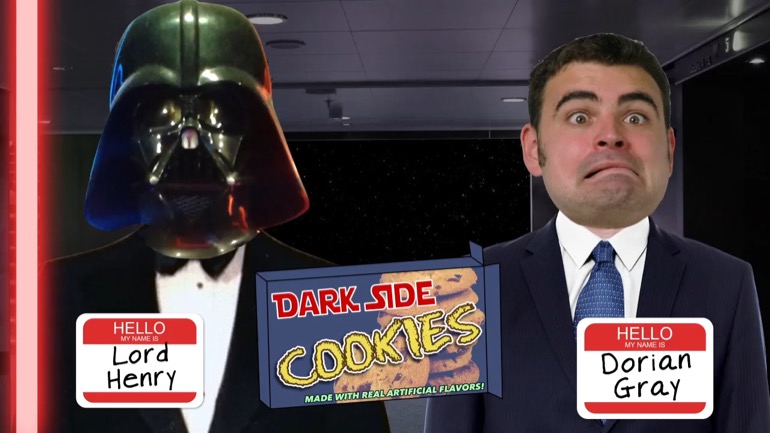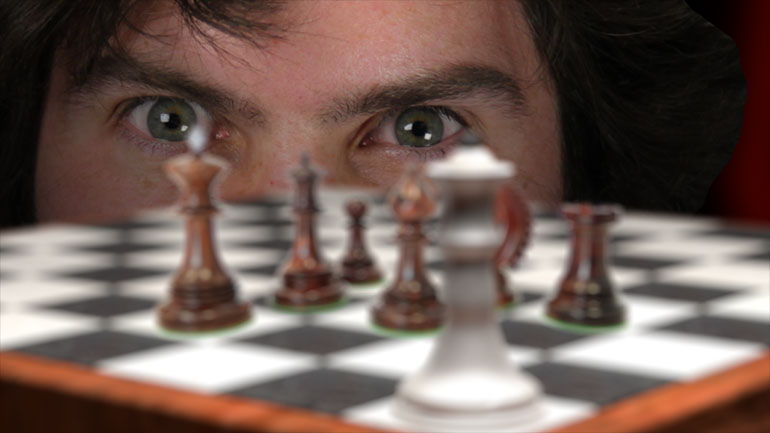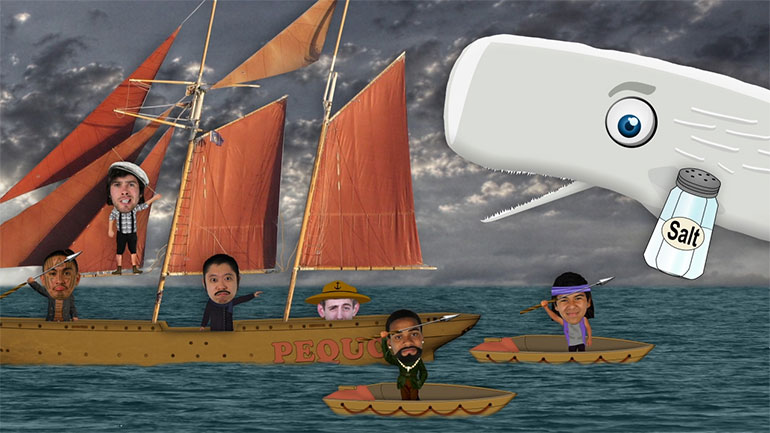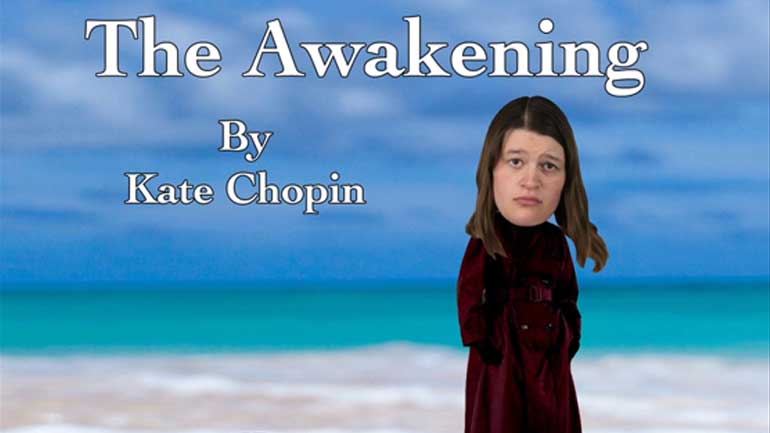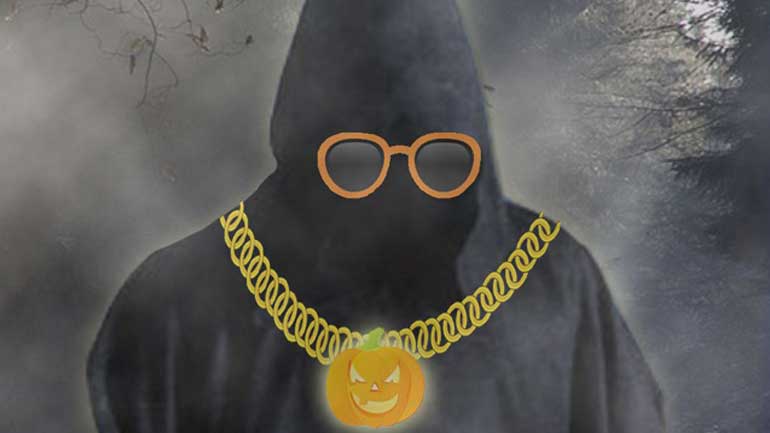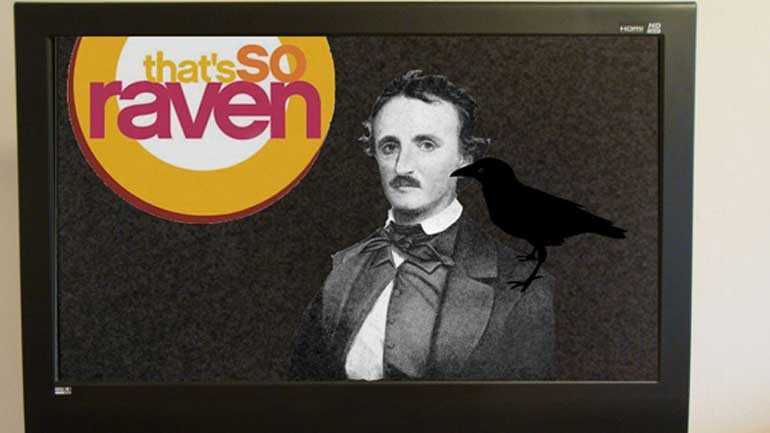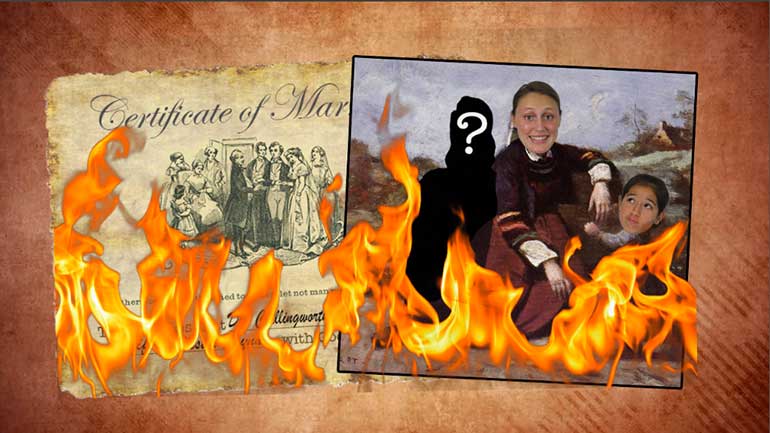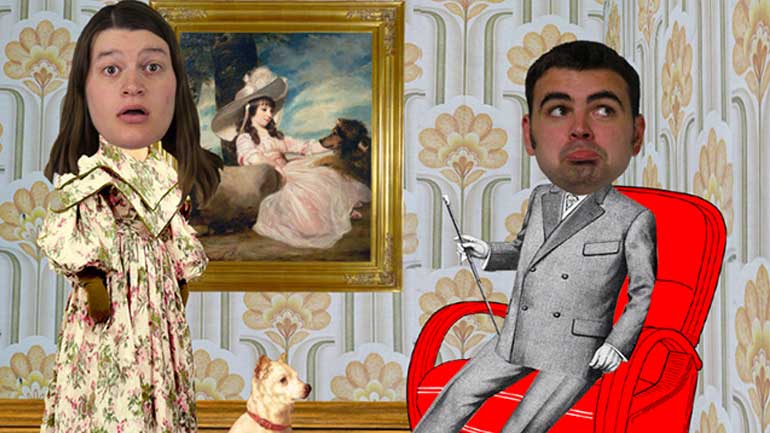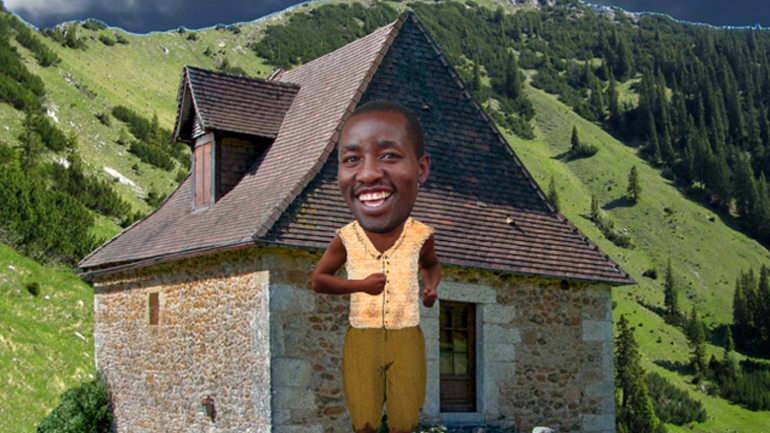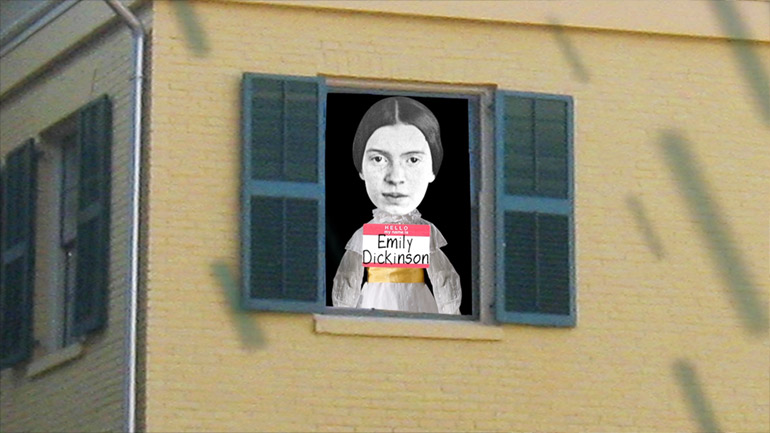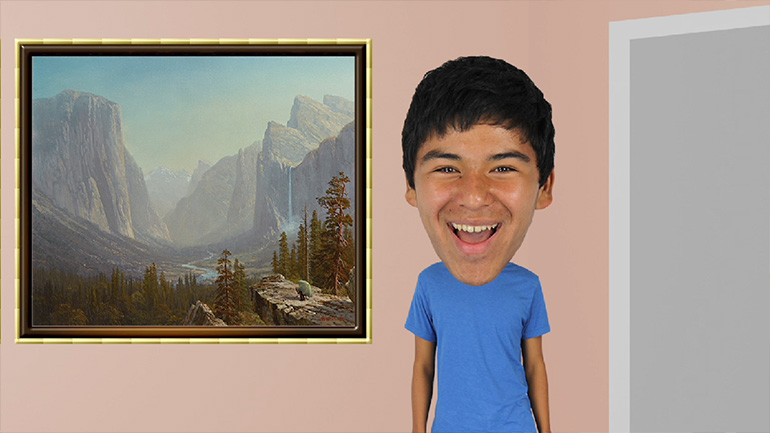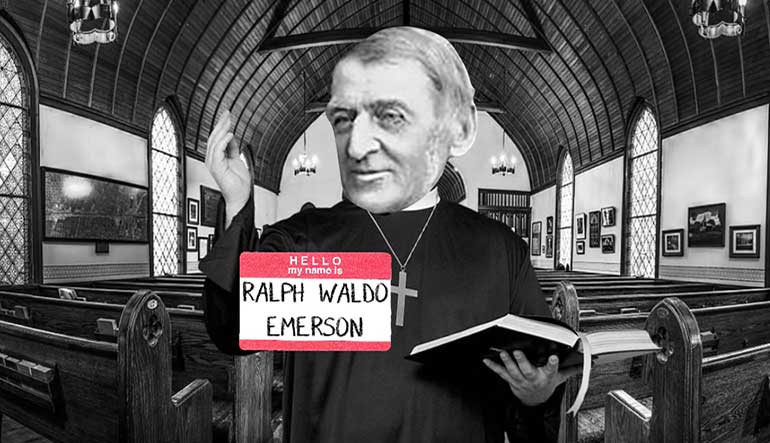ShmoopTube
Where Monty Python meets your 10th grade teacher.
Search Thousands of Shmoop Videos
19th-Century Literature Videos 51 videos
How did Scrooge go from being naughty to nice so quickly, and why? (Hint: contrary to popular belief, it has nothing to do with the ghost of Santa...
What would YOU do if the heart of the person you buried under the floorboards started making noise? Only one way to find out... (Note: Shmoop does...
Meet the Lady of Shalott. Not to be confused with the Lady of Shallot, who is frequently in a pickle.
American Literature: Whit and Wisdom 2142 Views
Share It!
Description:
Introducing the father of free verse, the poet of patriotism, the world’s wittiest Walt… Mr. Whitman.
Transcript
- 00:04
whit and wisdom... its outline time....
- 00:30
I'm home, it feels good hanging out in my neck of the woods here in New York [Statue of Liberty]
- 00:36
City I'd like you to meet one of my fellow New Yorkers Walt Whitman growing
- 00:41
up in and around the Big Apple was a major influence on Walt's poetry in fact
- 00:45
he became a lover of all things American from a very young age his parents Walter
Full Transcript
- 00:50
and Louisa were huge fans of democracy they loved it so much that they even [Walter and Louisa standing together]
- 00:54
named three of their sons after their heroes George Washington Whitman Thomas
- 00:58
Jefferson Whitman and Andrew Jackson Whitman as for Walt he had a few
- 01:02
different nickname The Bard which also means poet of democracy the father of [Examples of Walt's nicknames]
- 01:06
free verse and the penner of perfect poetry okay so he did give himself that
- 01:12
last nickname the guy did not lack self-confidence he's known for having
- 01:16
fathered free verse poetry but what is this free verse stuff anyway free verse [Walt fathering free verse poetry baby]
- 01:21
poetry doesn't have a rhyme scheme or a meter so it can really take any form
- 01:25
well maybe not any form free verse opened up a whole new world for poets
- 01:30
they were no longer held back by tricky little things like rhyme scheme and
- 01:33
meter... Walt was so taken by free verse he wrote a whole collection of poetry using [Walt with free verse poetry books]
- 01:38
it leaves of grass was Walt's accomplishment of a lifetime even though
- 01:42
he published it for the first time when he was only 35 he kept revising and
- 01:45
changing it throughout his life you might think that a book with such a nice
- 01:49
title and all that revision work would see a million copies and what would be [People in a cue outside a store and Walt bathing in money]
- 01:53
rollin in the dough and you'd be wrong when leaves of grass was first published
- 01:58
Walt's boss Secretary of the Interior James Harlan fired Walt - he said
- 02:02
the book was morally offensive with poem titles like to a common prostitute and a
- 02:07
woman waits for me it was clear that Whitman wasn't scared to write about the
- 02:10
topic of sex he didn't just stick to sex between men and
- 02:14
women either in a song of myself and many of his other problems won't wrote
- 02:18
about love between two men plus Harlan wasn't the only one who didn't think
- 02:22
leaves of grass was all that great some people said it should have been burned [Newspaper page outlining leaves of grass should be burned]
- 02:26
instead of published the author should off himself it was a mass of stupid
- 02:32
filth! ouch, all of this uproar eventually led to leaves of grass being
- 02:36
banned...critics called it too sensual, shocking, obscene you really want to read
- 02:43
it now don't you these days those are the markers of a best-seller but in the
- 02:47
mid 1800s people were a bit more a conservative or racist and homophobic
- 02:51
gender biased pick your poison anyway walt was into men instead of being a [Walt with a young man]
- 02:57
ladies man folks in his day didn't look too kindly to this lifestyle so if you wish
- 03:01
to see the process in motion today take a little trip to Saudi Arabia it's time
- 03:05
to see what all the hubbub was really about we're going to check out one of
- 03:09
Walt's offensive poems called song of myself its pretty long so hit pause now [Song of myself poem on paper]
- 03:13
then go and read it go on I'll be right here when you get back okay song of
- 03:19
myself is a pretty long poem so let's jump in and take a closer look at this
- 03:23
thing let's start with the basics when reading poetry what are the key elements
- 03:27
we look for imagery, speaker an audience, rhythm and rhyme or the lack of these in
- 03:34
Walt's case and theme we're going to examine each of these poetry conventions [Elements of poetry listed on board]
- 03:39
in a bit more detail let's start with imagery what types of mental images are
- 03:44
we given in song of myself there are a lot so let's zoom in on a few key
- 03:48
examples the beginning of part two reads houses and rooms are full of perfumes
- 03:52
the shelves are crowded with perfumes I breathed the fragrance myself and know
- 03:57
it and liked it the distillation would intoxicate me also but I shall not let [Part 2 of Walt's song of myself poem]
- 04:03
it ah can't you just smell that perfume that was a lot of scent...
- 04:12
whitman speaker is drawn into the fragrance scene before him inhaling but
- 04:16
not letting himself become intoxicated section eight opens the little one
- 04:20
sleeps in its cradle I lift the gauze and look a long time and silently brush
- 04:25
away flies with my hand... doesn't that sound nice well minus the fies this is [Person draws back a gauze and a baby appears]
- 04:30
a peaceful scene marrying youth with age or experience the process of aging was a
- 04:35
big theme in a lot of Walt's work but more on this in a few the wild gander
- 04:39
lead his flock through the cool night ya-honk he says and sounds it down to
- 04:44
me like an invitation in this piece of imagery we see Walt passion for nature
- 04:48
coming through in verse the natural world and man's connection with it is [Ducks walking in the woods]
- 04:52
another theme we see time and again throughout Walt poetry from the three
- 04:57
images we examined we can tell that Walt really like perfume the dichotomy of youth
- 05:01
versus age or experience was often a theme in is poetry Whitman wrote a lot
- 05:06
about nature and how man is connected to it now we know a little bit more about [Examples of imagery in Walts poem]
- 05:10
song of myself but there's a lot more to discuss next up let's talk about Walt
- 05:15
speaker and the audience he had in mind when writing this poem the speaker of
- 05:19
song is well a tough nut to crack in section 24 the speaker just busts out [Hammer smashes a nut]
- 05:24
and says I'm Walt Whitman - no arguing with that one but instead of just being Walt
- 05:28
the poet the speaker of song is more like a supercharged version of Walt like [Walt takes sip of Diet Pepsi can]
- 05:33
Walt on too many candy bars and sodas the Walt of his wildest dreams sometimes
- 05:38
poets are really connected to their poetry but have to employ some shall we
- 05:41
say poetic license in order to get their point across so the speaker of song of
- 05:46
myself is Walt Whitman but it also isn't on to our audience who do you think Walt
- 05:51
wanted to read song of myself? was it A politician's, B other poets, C the
- 05:57
entire cast of the musical rent well to be honest Whitman probably hoped that
- 06:01
all these people would read his poem his audience was the poetry reading people
- 06:05
of the world next on our poetry analyzing docket we've got rhythm and [Rhythm and rhyme definitions explained]
- 06:08
rhyme as we mentioned before free verse poetry isn't nailed down by a set rhyme
- 06:12
scheme, meter or rhythm the structure of song of myself is free verse some
- 06:17
critics argue that Walt borrowed bits and pieces of other poets structure to [Walt throws poet books on the floor]
- 06:21
create his own but that's kinda sorta what free verse is all about in our
- 06:24
opinion fun fact the original version of song of
- 06:27
myself wasn't broken into sections like the one you just read moving on we've
- 06:31
got theme; like any good epic poem song of myself has several important themes
- 06:35
more than anything else it's really about the identity of one person how it
- 06:39
can be broken down into three separate selves that make up a single hole Walt [Walt with a satan and angel walt either side]
- 06:44
explores identity as it relates to the social and natural world around him both
- 06:48
companionship and sex are other themes connected to identity you can't have a
- 06:52
good poem without relatable themes am i right we spent enough time on one song [Statue of liberty discussing Walt's poem themes]
- 06:56
let's check out some more of Walt's work Walt, like pretty much everyone in
- 07:00
America was affected by the Civil War after his brother George was wounded in [George in battle and explosion occurs]
- 07:04
battle Walt took off from New York in search of him he ended up serving as a
- 07:07
sort of nurse in military hospitals for the next few years everything he saw
- 07:11
greatly shaped his writing and his life Walt suffered from extreme mental
- 07:16
exhaustion and had to return to New York before finally having a breakdown like a [Walt having a breakdown]
- 07:20
good poet should Walt wrote about his experiences with the soldiers in a
- 07:24
poetry called drum taps the themes from this collection all stemmed from his
- 07:28
experience during the war Walt said that the book was put together by fits and
- 07:32
starts on the fields in the hospitals as I worked with the soldier boys why don't
- 07:37
we check out a poem from this collection you're going to read Whitman beat! beat! [Beat! Beat! drums poem]
- 07:41
drums hit that old pause button while you check her out
- 08:08
alrighty let's talk themes, obviously this
- 08:15
poems about war even though the speaker never comes right out and says it we're
- 08:19
talking about the Civil War the war is everywhere in homes, churches, schools and [People in civil war lying on the ground]
- 08:24
in the cities Whitman uses one of his famous lists to describe all the places
- 08:28
and people that the war has touched in some way to go along with this theme we
- 08:31
get the theme of rules and order the war is disturbing the normal order of things
- 08:35
which we see in lines like burst like a force of armed men and mind not the old
- 08:41
man beseeching the young man there's that mention of age and wisdom again [Theme examples of Drum-taps]
- 08:45
Death is another major theme in the poem because you can't talk about war without
- 08:49
mentioning death the interesting thing is though that's all Whitman does he [Death with a scythe and people firing canons]
- 08:53
mentions death right at the end of the poem finally let's talk about the tone
- 08:57
of this poem what sort of atmosphere does Whitman create in this poem does it
- 09:01
make you feel cheerful, angry as can be, a little sad like maybe you want to write
- 09:06
some poetry if you said sad you're probably in the majority this poem might
- 09:10
have an upbeat cadence to it but it's not a happy one beat beat drums is
- 09:14
representative of all the work in drum taps good old-fashioned war poetry [Soldiers marching and banging drums]
- 09:19
written by a good old-fashioned American patriot you've now met Walt Whitman poet,
- 09:24
countryman, lover of men and women but not in the same way, nurse and book
- 09:29
author and controversial literary figure we shouldn't leave without saying [Leaf falls and gravestone of Walt appears]
- 09:33
farewell property that one gets me every time....
Related Videos
“Happy Hunger Games!” Or not. Katniss’s Hunger Games experiences left a not-so-happy effect on her. This video will prompt you to ponder if...
Who's really the crazy one in One Flew Over the Cuckoo's Nest? Shmoop amongst yourselves.
Sure, Edgar Allan Poe was dark and moody and filled with teenage angst, but what else does he have in common with the Twilight series?
¿Por que es el 'Gran' Gatsby tan gran? ¿Porque de su nombre peculiar? ¿Porque de el misterio que le rodea? Se ha discutido esta pregunta por muc...
Would would the world be like without books? Ray Bradbury tackles that question—and many more— in Fahrenheit 451. Go ahead; read it on your Kin...





















